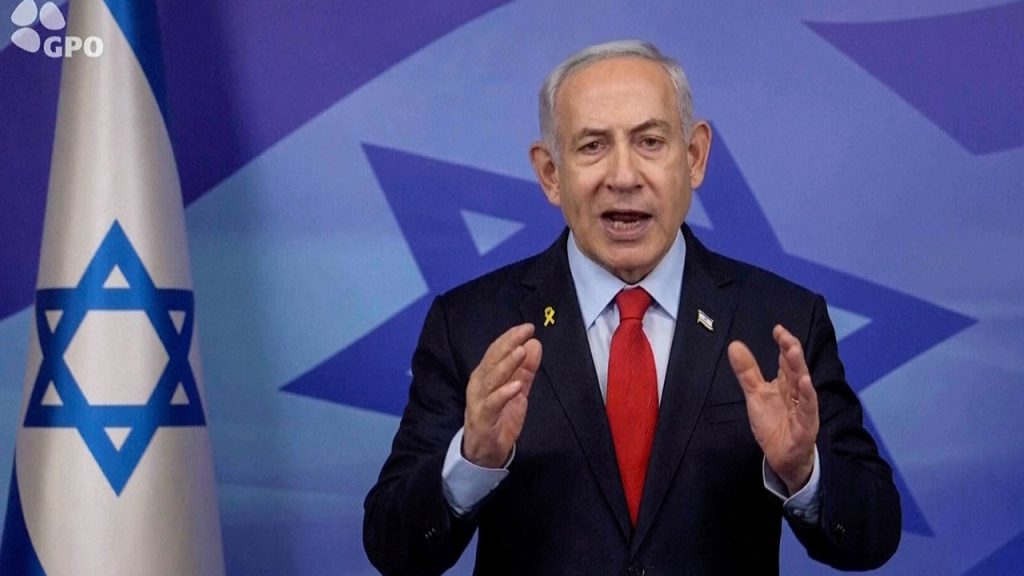Benjamin Netanyahu’s corruption trial, taking place amidst the backdrop of the ongoing war with Hamas, has provided a platform for the Israeli Prime Minister to air his grievances against former U.S. President Barack Obama. Netanyahu, the first sitting Israeli Prime Minister to face criminal charges, stands accused of breach of trust, bribery, and fraud. He vehemently denies these charges, portraying himself as a tireless worker dedicated to the welfare of Israel, and ascribing his legal troubles to a politically motivated witch hunt orchestrated by law enforcement and amplified by a hostile media. His courtroom testimony has focused extensively on his policy clashes with the Obama administration, asserting that his resistance to American pressure regarding Palestinian statehood and Iran was rooted in his commitment to Israel’s security and not personal gain.
Netanyahu’s narrative paints a picture of constant friction with Obama, characterizing their relationship as fundamentally misaligned on key strategic issues. He alleges that Obama’s pursuit of a Palestinian state and engagement with Iran were detrimental to Israel’s interests. Netanyahu claims he faced immense pressure from Obama to freeze construction in Jewish settlements, including areas of Jerusalem claimed by Palestinians, and to concede territory for a future Palestinian state. He recounted an anecdote about being urged by Obama to visit Afghanistan to learn how to train Palestinian security forces, a suggestion Netanyahu dismissed, accurately predicting the eventual collapse of these forces upon the U.S. withdrawal. These disagreements, according to Netanyahu, underline his unwavering defense of Israel’s security interests against what he perceived as a naive and misguided American approach.
The core of Netanyahu’s defense rests on the argument that he did not seek to manipulate media coverage for personal benefit, but rather to counter what he perceived as a hostile international environment fostered by the Obama administration. He asserts that his actions were motivated by a desire to protect Israel’s image and promote its narrative in the face of international pressure, specifically citing Obama’s stance on the Palestinian issue. He contends that had he been motivated by personal gain through favorable media coverage, he could have simply acquiesced to international demands regarding a Palestinian state, a move that would have garnered him widespread praise. Instead, he claims, he chose to prioritize Israel’s interests, thereby exposing himself to criticism and ultimately, to the current legal proceedings.
Netanyahu’s testimony detailed specific instances of alleged pressure from the Obama administration. He recounted a conversation with then-Secretary of State John Kerry, who purportedly attempted to assuage Netanyahu’s concerns about entrusting security in the West Bank to Palestinian forces. Kerry, according to Netanyahu, argued that American training would render these forces reliable. Netanyahu’s retelling of these events positions him as a discerning leader who recognized the potential dangers of such a policy, in contrast to what he portrays as the American administration’s misplaced trust in the Palestinian Authority’s security capabilities. This narrative underscores his defense strategy, emphasizing his primary focus on Israel’s security.
The specific charges against Netanyahu revolve around allegations of accepting lavish gifts from Hollywood producer Arnon Milchan in exchange for political favors, and illicit dealings with media moguls Arnon Mozes and Shaul Elovitch for positive coverage. Netanyahu dismisses these allegations as “absolute lies,” portraying himself as a dedicated public servant whose long working hours leave little time for family or personal indulgence. He describes his limited leisure time as being devoted to intellectual pursuits like reading history and economics books, further reinforcing his image as a serious and committed leader, far removed from the accusations of corruption. This portrayal of his lifestyle serves to counter the prosecution’s narrative of a leader motivated by greed and personal enrichment.
The ongoing trial, intertwined with the complex geopolitical realities of the Israel-Hamas conflict, presents a dramatic spectacle. Netanyahu, required to attend court thrice weekly, uses the platform to not only defend himself against corruption charges, but also to re-litigate past policy disputes with the Obama administration. His testimony paints him as a steadfast defender of Israel’s interests, pitted against a hostile international environment. The trial’s outcome remains uncertain, but its proceedings have undeniably provided a stage for Netanyahu to present his version of events, casting himself as a victim of political machinations rather than a perpetrator of corruption. He asserts that the true threat to Israeli democracy originates not from elected officials like himself, but from elements within the legal system pursuing what he considers a politically motivated “coup.”

